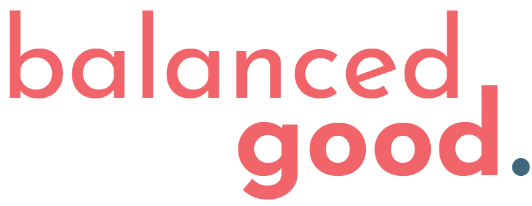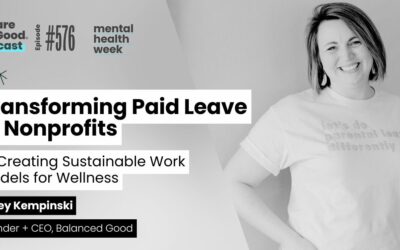Lately, I’ve been feeling a little bit blue about our sector: donations are down, there is a leadership crisis, turnover continues to be high, parental leave barriers and I’ve heard of many great fundraisers leaving or thinking about leaving our sector.
What is going on?
Then, one simple story, one moment, inspired me once again. I’d like to share my recent conversation with a good friend and fellow fundraiser, let’s call her ‘Jane’.
Jane recently left a job, feeling quite crushed and struggling with hard feelings about our sector. If you’ve ever left a negative work culture, you know how soul-crushing that can be on your outlook of our sector.
We met a few weeks ago to catch up, and she’s in a new role now. Her smile was huge, she was excited, rejuvenated. She talked about how incredibly supportive her new employer is, she is being challenged in her work, meeting incredible donors, and working with those who are impacted by the funds she is raising. And then she said to me “I’m seeing other parents being supported in a work-life balance, my senior leaders have even chatted with me about ensuring I have this balance”.
What? A leader acknowledging the importance of balance and having an open and honest discussion about her family plans and how they would support her, before she was even pregnant. This is incredible, different from my experience (and many others), and made me wonder what are other women’s experiences? What are their concerns about career trajectories and the impact their family plans might have on this? And how does this affect our sector as a whole?
So, I set out on a mission – a coffee date, zoom chat mission filled with very candid (and anonymous) conversations.
While doing this I also dusted off my trusty, statistics-loving, research reading, google scholar, nerd glasses to see what research was available and what it was saying.
The simple statistics say a lot about our sector – our workforce is made up of 75% women, with 70% of leadership positions being held by women. However, a pay gap exists – typically women are making 24% less than their male counterparts in the same (or similar) position. With the high percentage of women and women leaders in our sector we are very different from traditional or corporate work forces (Imagine Canada, The Gender Wage Gap: Division of Labour in the Charitable and Nonprofit Sector, 2018).
However, as Decent Work for Women (2018) highlights there are significant gaps in supportive work environments for women as it relates to caregiver benefits, pension plans, and maternity leave top-ups. Oh, and then there is this thing called the “care penalty”, which essentially is stating that non-profit work for women is devalued as it is viewed as “care giving” work.
The reality is – women have children – we grow humans for 9 months, we need to physically (and emotionally) recover after childbirth, and motherhood (and fatherhood) can completely change your outlook on life.
With more and more young professionals seeking out and intentionally building a career in our sector, it’s important that we look at the issues surrounding women and mothers in the workforce. As the Imagine Canada (Young People & Non Profit Work, 2017) article highlights “… (a fundraising career) takes too much of my time for it not to be something I’m totally passionate about”. Young professionals (and I would argue experienced professionals as well) want passion, want to be change-makers, want flexibility and they expect clear expectations and an environment that fosters learning, growth, and development of leadership skills.
With a leadership crisis underway, what are we doing to engage the next generation of women leaders? How are up and coming fundraising all-stars being supported in their career growth and their family planning? How are we setting these women up for success? And how are current women leaders demonstrating empathy and supporting those rising through the ranks?
I chatted with women in mid-level fundraising roles, some who are contemplating children soon, some who are currently pregnant, and some who have recently had children. My conversation pointed to some mixed reviews – some women feel confident that their workplaces provide them with the autonomy to excel in both roles as a fundraising professional and caregiver, and some feel completely overwhelmed at the idea of trying to navigate sick days, appointments, and daycare drop-offs in their traditional “butts in seats” work environments.
The women who I chatted with who felt supported in their work-life balance goals had a much more optimistic outlook on the sector. Where those who weren’t supported were not as optimistic – they had concerns about being pushed away from donor relationships because of their plans to take 12 to 18 months off for maternity leave, or a sense of growing resentment for not being given the trust and flexibility to deal with their personal life alongside their work life.
I spoke with one young woman who just left our sector, she used the words “being bullied” and heard from her employer on multiple occasions “now don’t you go get pregnant on me”. I’ve heard of women who were turned down for promotions or raises while pregnant because “the timing isn’t right”. And these women had a strong track record of fundraising success and meeting performance management goals.
Many fundraising shops don’t have a Human Resources Department, so what are women to do if they face these concerns? One woman I chatted with made a great point about this:
“I feel women my age have a silent conversation in the form of looks, whispers, and ‘quick runs to the doctor’ because we all know the issue exists, but we don’t feel there is an understanding explicitly laid out. We also assume the older managers know what they are doing and how it is negatively affecting our quality of life, but I’d like to challenge that maybe they don’t. Maybe we need to start the conversation and open the floodgates, no matter how uncomfortable it may be. I feel women aren’t asked to give their opinions and expertise on this topic. Our managers aren’t asking. So, unless a woman has the confidence to speak up and ask her organization to do better, the conversation will never crack open”.
So, what can we do about these feelings, the trends the research is showing? How can we create a more supportive work environment where women (and caregivers) feel empowered to do the important, life-changing work of raising money for amazing causes while also raising our future generations of leaders?
Don’t we want our children to be exposed to and see the incredibly important work we are doing?
I would like to challenge that we do need to open the “floodgates”. We need to have these important conversations with our employers, we need to create the work-life balance needed to excel and not worry about having to “ask” for it. But we need cultures that promote this. As one woman said:
“At the end of the day, our employers need to understand that we are adults too – we should be given privileges until we give them a reason to take them away from us. We don’t need babysitters. Perhaps leaders need a reminder that they were once our age. A reminder of how important career growth was to them. A reminder of how hard they had to work to get to where they are now, and a reminder that we want to do the same. A reminder that the essence of great leadership is influence not authority. Maximize both of our talents and empower us go-getters to do great things…we will fly”.
After researching and chatting with these women it’s even more clear to me – something needs to be done to help support and build-up the next generation of fundraising leaders. The more we develop a passiveness to status-quo the more we risk losing amazing leaders in our sector.
There is a huge gap in research around working mothers and caregivers in our sector. There is no clear research on how we can create “back-to-work” programs for women re-entering the sector following maternity leave. We desperately need to find better ways to reduce parental leave barriers and support and celebrate women and mothers as leaders.
We are in a sector of caring, of empathy, of love. These are all traits that go hand-in-hand with motherhood and with building genuine relationships with our donors. I don’t think that’s a coincidence. Let’s start the tough conversation, let’s open the floodgates, and let’s make a positive change encouraging a healthy work-life balance and reducing parental leave barriers in our sector. The leaders of tomorrow are counting on us.
Stay tuned for more on this in the coming months. Thank you to the women who bravely shared their concerns and experiences with me. If you would like to share your experiences (in a completely anonymous forum) please reach out to me.





